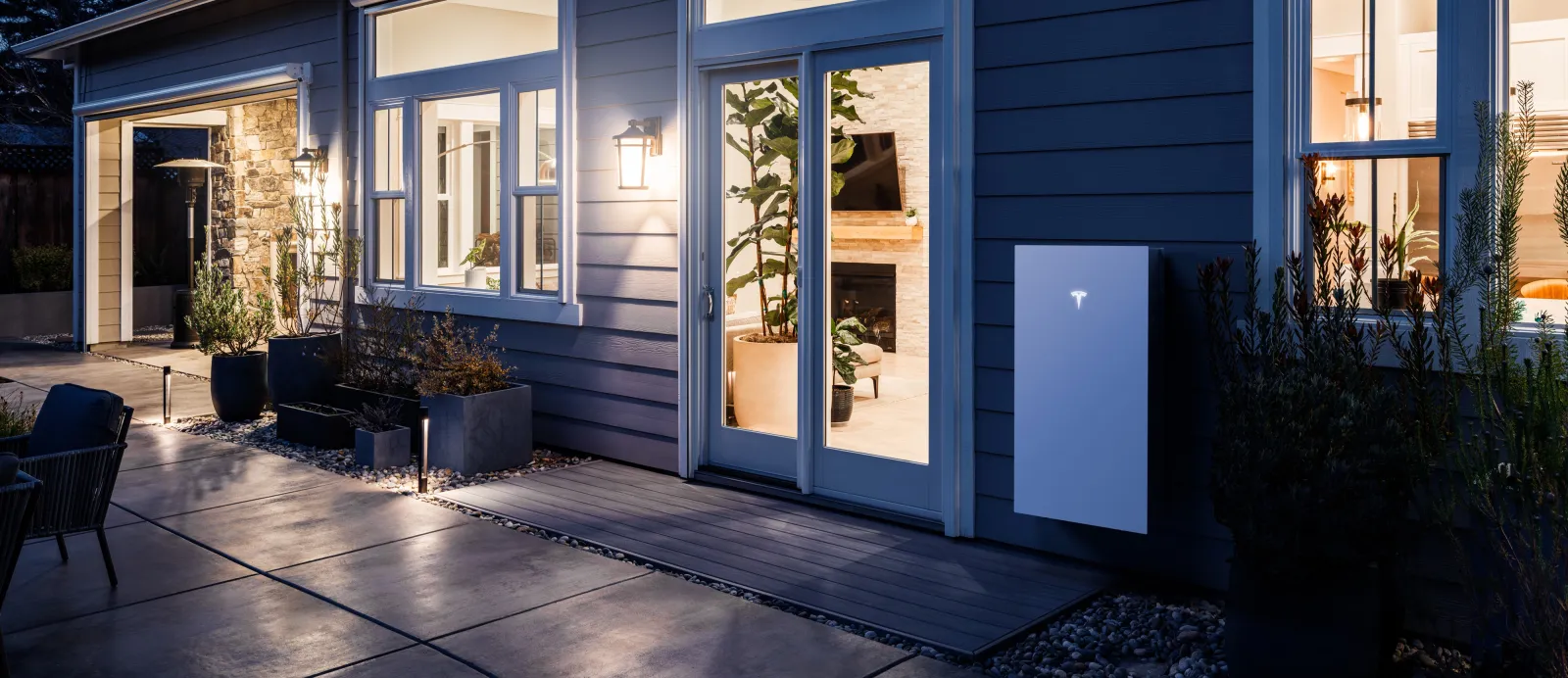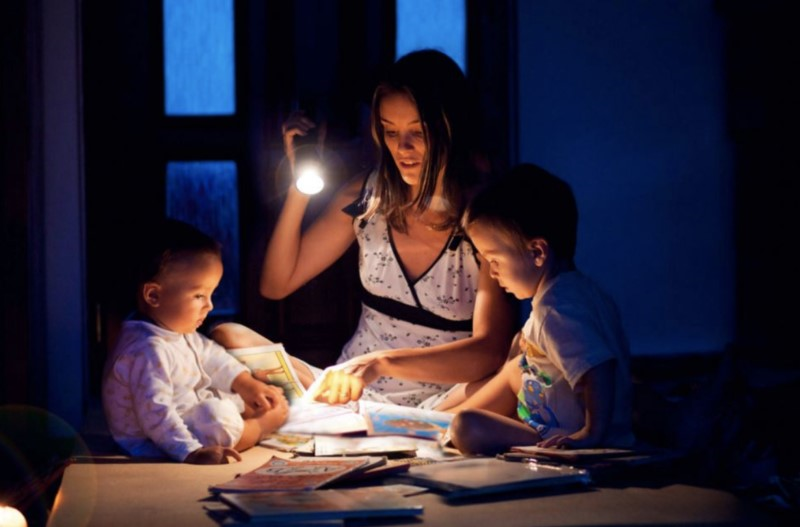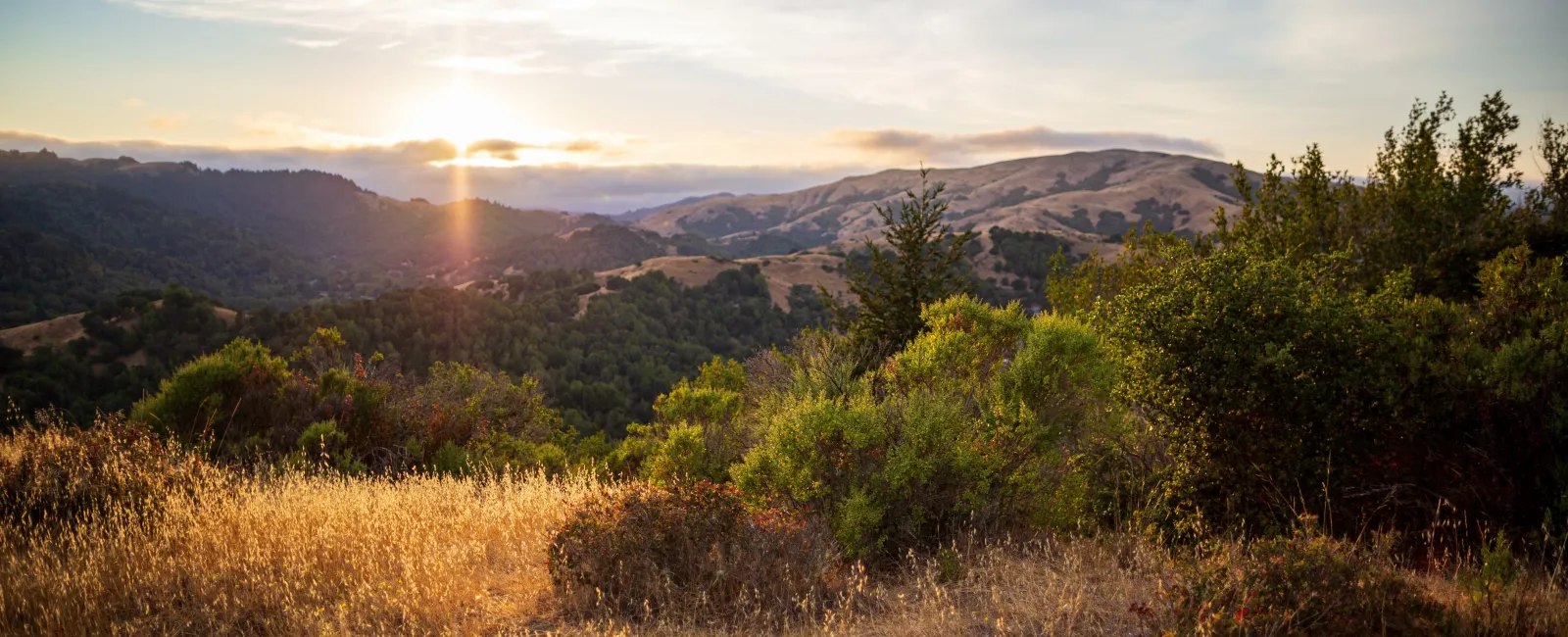January 07, 2026
Suppose there's a power failure. A solar battery backup system will keep your lights on.
By combining a home backup battery system with a solar panel system, you can keep your home running during power outages. You can have peace of mind knowing that your house will always have power because of battery storage. Backup solar energy is a wise investment for a household's emergency preparedness plan.
There are several factors to consider when deciding whether to install a battery backup system. Our experts can help you make the best choice for your home.
Can't my Solar Panels Keep Providing Electricity During a Power Failure?
All that's required to generate free electricity from a properly built solar power system is sunshine. It's as simple as that. So, if the sun is shining during a power outage, why don't my solar panels power my home when the grid goes down?
It's because of the way a grid-tied solar power system functions. Sunlight strikes the panels, generating electricity, which is then routed through an inverter and used to power your laptop or heat your meals. When your panels generate more electricity than you consume, the excess is fed back into the grid.
In the event of a power outage, grid-tied solar power inverters automatically shut down because, if you're sending electricity into the grid, it isn't safe for utility workers to repair the power lines. They might get electrocuted. So, when the power grid is down, your solar panel system's energy inverter shuts off. That's why your home doesn't have electricity. No power is coming in and no power is going out.
During a power outage, your solar panels CAN power your home, if you have a solar backup battery. Prepare a safe and reliable backup plan for your home's energy supply in order to keep it secure. Talk to a solar energy expert to learn more about how to prepare your home for an emergency.
In most cases, power outages are caused by a disruption between the homeowner and the electricity provider. Sometimes, a damaged power line or other system failure stops the power plant from supplying electricity to customers in the affected service area, even though it can produce electricity. These residences contribute to the community's electricity output, but they are not exempt from blackouts that affect the entire neighborhood.

Only by storing the solar power your system generates on-site can you limit your exposure to a power outage. To do so, you need a solar battery backup system. You'll have to pay a little more than if you only install solar panels, but your house will still have electricity even if the rest of your neighborhood does not. Using solar panels combined with battery storage is a tried-and-true method of taking control of your energy usage. You can use your solar battery as a backup in the event of an outage. For example, if the power goes out, your critical systems, like your security alarm, medical equipment, water pump, and refrigerator, will continue to operate.
Solar batteries allow you to have greater control over your energy supply during a Public Safety Power Shutoffs (PSPS) and other power interruptions. When compared to generators, which are noisy and dirty, backup batteries provide clean energy for a longer amount of time and recharge themselves automatically each morning as the sun rises.
If you're considering installing a battery backup system, it's important to do your research. The cost of solar batteries can be prohibitive for some households, despite their increasing prevalence. As a result, many solar contractors would suggest that you limit how many backup batteries you install and only power a small number of essential items.
Solar Battery Storage System Pricing
The pricing of a solar battery storage system depends on how much electricity you want to have when the grid goes down, the brand of solar panels you buy or lease, the size of your solar system, and a variety of other factors. We provide free evaluations to help you make an informed decision about whether adding solar storage to your system is financially viable.
Backup Power is becoming More Critical
A variety of disruptions in the power grid cause power outages, such as severe weather, faulty equipment, fallen trees, or traffic accidents. One cause of power disruptions grows increasingly threatening: wildfires.
Every year, wildfires in California expose the power grid's shortcomings in providing safe and consistent energy to its users. In the state's developing urban-wilderness, high-power electric lines passing through high-fire threat zones have had devastating results. For example, tens of thousands of Californians were without power and 86 individuals lost their lives as a result of wildfires in 2018 that were sparked by an electric utility's power lines.
As a result, electric utilities are becoming more proactive in their efforts to reduce the likelihood of igniting devastating wildfires. One step power companies take to prevent wildfires is initiating rolling preemptive blackouts, also known as Public Safety Power Shutoffs (PSPS), which can affect millions of people at once. The California Public Utilities Commission (CPUC) grants utility companies the authority to enact power shut offs as a public safety measure. During a PSPS, households may be without power for days at a time and have limited control over their property and neighborhoods. To learn more about how you can have control over your home's energy, contact us.

Four Important Things to Know about a PSPS Outage:
- Both the transmission and the distribution networks may be de-energized. People who live or work in places where electric cables cross high-risk terrain are more likely to experience a preventative power outage. The CPUC has categorized several high-risk terrain electric lines as being at elevated (Tier 2) or extreme (Tier 3) risk of wildfire.
- A PSPS outage might affect any California electric utility customer. If a community relies on a power line in a high-fire-threat area, hundreds of thousands of electric consumers in California could be affected. Depending on the weather forecast and the circuits that need to be shut down, the impacted areas and the number of persons will vary.
- It's possible that a single PSPS disruption could impact more than a million California utility subscribers. Most customers will have power restored within 24 to 48 hours, but for some, outages persist for days or even weeks.
- As wildfires become more frequent and intense, towns may experience numerous blackouts every year for safety reasons. The PSPS disruptions are not a simulated emergency, but rather a real-world response to a potential threat. In the face of these unforeseeable events, preparation pays off.
"Wildfire season" is a thing of the past. Wildfires are a year-round threat.
Wildfires are now a year-round occurrence, and they are becoming more frequent and intense. If a power outage is imminent due to wildfire conditions, utilities will notify customers, if possible. However, PSPS events usually happen without warning and can last for days. Because of the state's aging energy infrastructure, outages in California are becoming more frequent and last longer. Now is the time to prepare for uncertain energy availability in the future.
The sun is the most stable and dependable source of renewable energy. Today, solar energy powers more homes than ever. In the event of a power outage, households are increasingly appreciating its role as a backup power source. As wildfire more frequently threatens the power grid, households place a higher value on solar energy's critical role as a backup power source in the event of a power outage.
During major power outages or shortly afterwards, people are more interested in powering their homes with solar energy than usual. Homeowners want to know if they will be immune from power outages if they go solar. The answer depends upon what type of solar system they decide to purchase or lease and whether they have a solar battery storage unit in addition to solar panels.
With a solar battery backup, you can have peace of mind knowing that your home is protected from power outages. In today's world, simply being connected to the old grid is insufficient. Even having solar panels installed is insufficient when disaster strikes. Only a solar battery can help protect your home from power outages.


